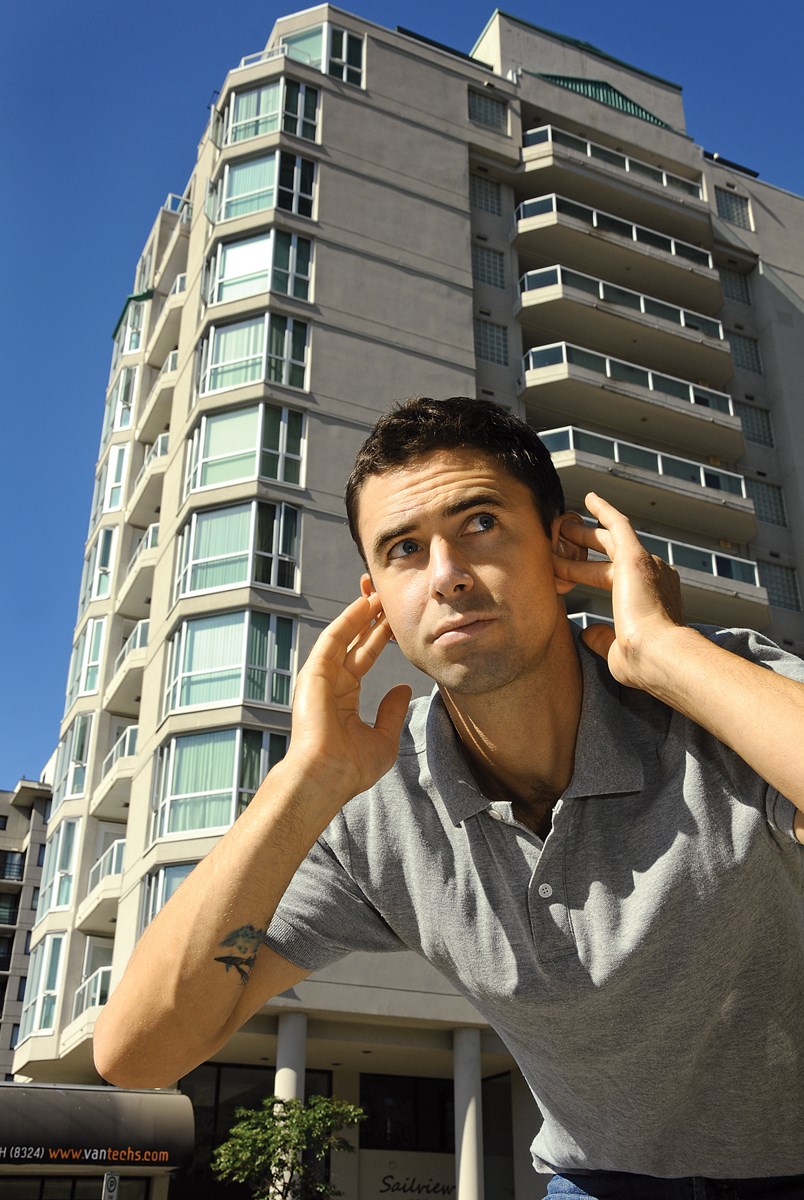Imagine an inescapable, high-pitched ringing in your ears that causes severe discomfort at unpredictable hours, day and night.
That's the case for Alex Millar, a Lower Lonsdale resident who says someone in the neighbourhood is using a high-frequency sound-emitting device, known as a Mosquito, to deter loiterers.
But the Mosquito, which is designed to only be heard by and annoy young people, is coming through painfully loud and clear for the 35-year-old former teacher, even in his 14th floor unit on the 100-block of West Second Street.
"Everyone I share this story with is pretty flabbergasted and amazed.. .. Last night, it was on from 2 a.m. to 6 a.m," said a noticeably tired Millar. "I didn't sleep very much last night because of the noise."
Millar's first run-in with a Mosquito was at Lonsdale Quay last year. After complaining to the City of North Vancouver, bylaw enforcement officers tracked down the source of the noise and arranged with management to have the machine turned off.
"Ideally, I'd like to see these things outlawed in public spaces. I understand the argument that if playgrounds are being vandalized or graffiti is happening on a recurring basis, OK, let's put these things in and play them at night.. .. That's not unreasonable," he said. "But to play it on a public street in a residential area is unacceptable, in my opinion, whether it's daytime or nighttime."
Millar suspects the sound is coming from several boxes installed on the side of the neighbouring Sailview building at 125 West Second St.
But Vancouver Coastal Health, which the city contracts for noise monitoring, cannot find the source of the high-pitched whine, despite sending inspectors to the neighbourhood several times and confirming the noise exists, according to Randy Ash, senior environmental health officer.
And the Sailview manager said there are no Mosquito devices anywhere on the building.
"There are sensors in the wall that measure water penetration. They are a wireless device, just like your phone, laptop or other electronic devices. We have double and triple checked with the consulting engineers who oversaw the project and the equipment installer. They do not transmit any sound," said building manager Jim Allison in an email.
Several Sailview residents have reported hearing the noise as well, and speculate that it is coming from the Observatory condo building on the other side of the street, Allison said.
"We are very confident the source of the noise is not from the Sailview," he said.
Whoever is controlling the Mosquito is unfairly targeting young people and people with sharp hearing as a means of dealing with noise that simply comes with living in the city, Millar said.
"I don't deny there's a problem. I hear (loiterers), and I also heard drunk people, yelling at each other in the street. We live in a city. There's going to be noise on the street. That's part of living in a city," he said.
In the meantime, Ash has asked Millar to keep a log of when the machine is turned on and off to see if there is an established pattern. Other residents in the area could be helpful by keeping an ear out for it.
"If other people are hearing noise that they find bothersome, and particularly if they can identify a source, we'd follow it up," he said.
While the city does not have a policy on the use of high-frequency noise devices and the decibel level they operate at is typically not high enough for a noise complaint, the city could use bylaw enforcement on the machine's owner on the grounds that it "disturbs peace and enjoyment," according to Brad McRae, manager of bylaw services.
"We've spent some time trying to find out where the sound has been emanating from. It's not been successful as to date so we're looking at some proactive measures.
"We just have to figure out how we're going to tackle this and we're currently doing that," McRae said.



